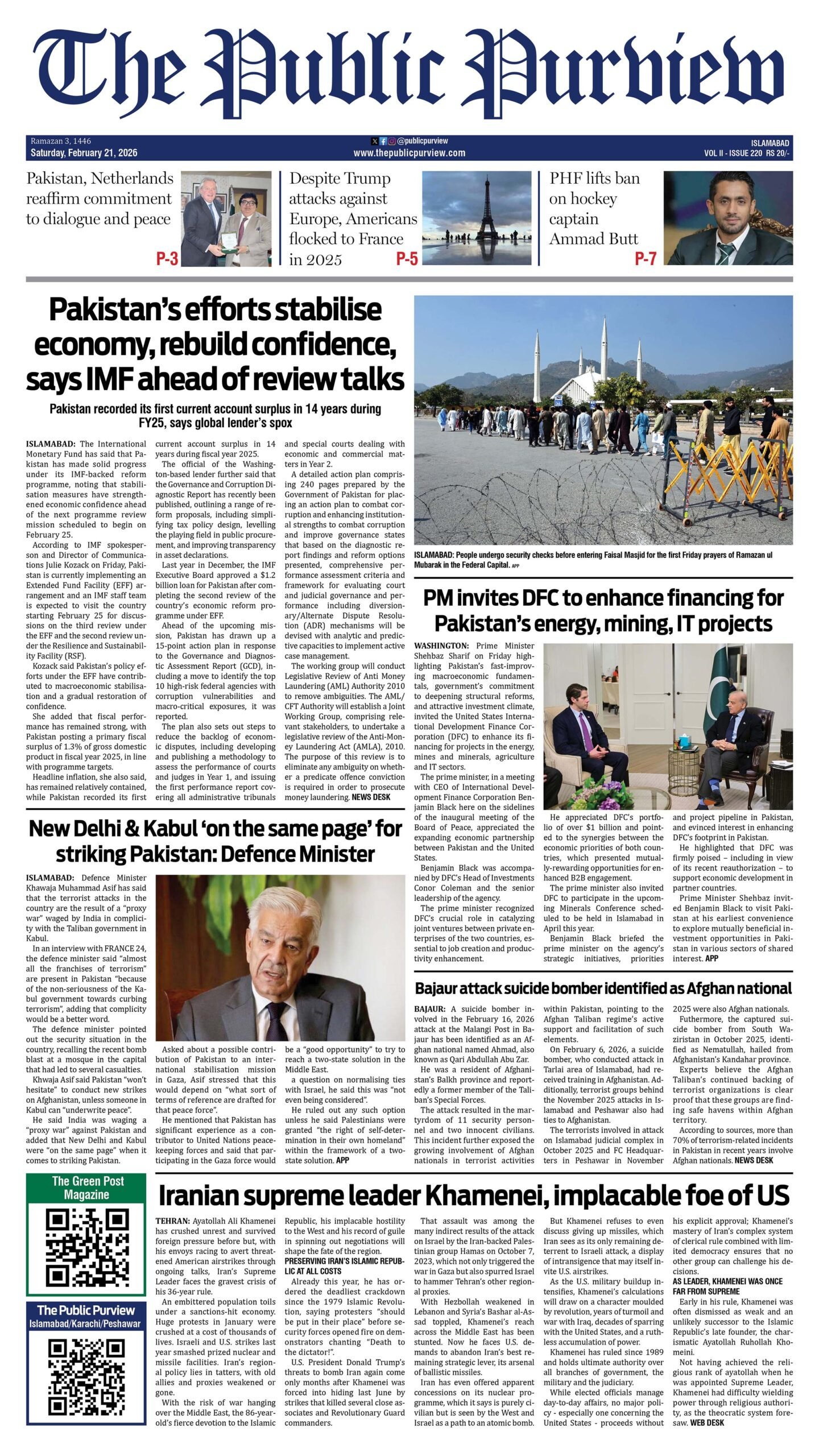ISLAMABAD (Staff Reporter): When the 1,320 MW Sahiwal Coal-Fired Power Plant was first conceived under the China–Pakistan Economic Corridor (CPEC), it was envisioned not only as a major energy project but also as a platform to nurture Pakistani engineering talent. This marked the beginning of the Sahiwal engineers journey. Nearly a decade later, in 2025, the plant stands as a symbol of reliable electricity supply, human capital development, knowledge transfer, and the rise of a new generation of technical leaders in Pakistan’s power sector.
The project’s original goal focused on meeting the nation’s growing energy demand. However, its hidden achievement—developing local expertise—has become one of its proudest legacies. Today, the engineers trained through Sahiwal are leading departments, managing operations, and influencing policy, proving that the human capital created here is as valuable as the megawatts produced.
Training in China
The journey began in 2016 when Huaneng Shandong Ruyi (Pakistan) Energy Pvt. Limited, backed by the China Huaneng Group, selected 180 Pakistani engineers for specialized training in China. These engineers, mostly fresh graduates or early-career professionals, traveled to some of China’s top power plants.
During their training, they gained hands-on experience in operations, maintenance, instrumentation and control, electrical systems, and safety. The program was not symbolic; it offered a rigorous, practical, and structured learning experience. Engineers learned global best practices in thermal power generation, prepared to manage real-world challenges back in Pakistan.
By working in operational plants, the Pakistani engineers became familiar with advanced technologies, high-efficiency systems, and strict safety protocols. They returned with confidence, ready to contribute actively to the Sahiwal project.
Commissioning the Plant: Hands-On Learning for Sahiwal Engineers
Upon their return, the engineers collaborated with experienced Chinese technical masters during the commissioning phase. Commissioning a supercritical coal-fired plant requires precision, coordination, and constant monitoring. Every valve, turbine blade, and electrical circuit needed to be tested under real operational conditions.
During this phase, Pakistani engineers gained practical problem-solving skills. They worked on troubleshooting complex systems, learning to identify and rectify issues under pressure. This hands-on experience was pivotal, providing some of the most valuable training of their careers.
Commissioning also emphasized teamwork. Engineers learned to communicate effectively, coordinate with multiple departments, and manage timelines. The Sahiwal engineers journey during commissioning ensured that local staff became deeply familiar with the technical, operational, and managerial aspects of a large-scale power plant.
Operations and Mentorship: Advancing the Sahiwal Engineers Journey
Once commissioning was completed, the plant entered its operations and maintenance phase. Here, the focus shifted from learning to leadership. Chinese experts remained on-site as mentors, while Pakistani engineers gradually assumed more responsibility.
Over the years, the balance shifted. Engineers who initially shadowed their Chinese counterparts started handling independent tasks. By steadily transferring both technical and managerial responsibilities, the Sahiwal project ensured that local engineers could operate and maintain the plant autonomously.
Today, almost all operational shifts are managed by Pakistani professionals. Electrical systems, instrumentation, control maintenance, and troubleshooting are handled confidently by local teams. The Sahiwal engineers journey has transformed trainees into decision-makers and leaders within less than a decade.
Expanding Impact Across Pakistan
The influence of Sahiwal-trained engineers extends far beyond the plant. More than 20 alumni now serve in government institutions, regulatory bodies, and agencies like NEPRA, NPCC/ISMO, and CPPAG. Their expertise informs policy decisions, regulatory frameworks, and technical negotiations.
Engineers who began their careers at Sahiwal now manage many ongoing negotiations with government ministries, power buyers, and grid operators.. Their training in China and experience in plant operations equips them to address complex technical and administrative challenges nationwide.
This ripple effect demonstrates how international collaboration can create local expertise, which then strengthens national capacity in the energy sector.
National Pride and Retaining Talent
Sahiwal also represents a case of talent retention. Pakistan has historically struggled to keep skilled engineers in the country, with many seeking opportunities abroad. However, the Sahiwal engineers journey provided young professionals with world-class experience while anchoring their careers domestically.
For Pakistani students and aspiring engineers, the story provides inspiration. It shows that with access to the right opportunities, local talent can reach international standards and lead major infrastructure projects.
Lessons from the Sahiwal Engineers Journey
The Sahiwal engineers journey succeeded due to three key factors:
-
Early investment in training: Engineers received advanced, hands-on training in China, giving them a strong technical foundation.
-
Mentorship during operations: Continuous guidance from Chinese experts ensured knowledge transfer was practical and effective.
-
Gradual responsibility transfer: Engineers moved from trainees to independent leaders, gaining both accountability and confidence.
This approach allows future infrastructure projects in Pakistan to replicate the model, integrating knowledge transfer and human capital development into project planning.
Inspiring Future Leaders
Today, young engineers across Pakistan view the Sahiwal-trained professionals as role models. They demonstrate that rigorous training, practical experience, and mentorship can empower local talent to manage and lead large-scale projects. The story motivates students to pursue careers in the energy sector, confident they can achieve global standards while contributing to national development.
Shaping Pakistan’s Energy Future
As Punjab’s homes, schools, hospitals, and factories glow with electricity generated at Sahiwal, the brightest achievement is the knowledge, skills, and leadership of Pakistani engineers. They manage operations, lead teams, and influence national energy policy. The Sahiwal engineers journey proves that human capital can be as transformative as megawatts of power.
With continued investment in technical training, mentorship, and structured responsibility transfer, Pakistan’s energy sector can cultivate more professionals like those from Sahiwal, ensuring a sustainable and skilled workforce for decades to come.







 Today's E-Paper
Today's E-Paper